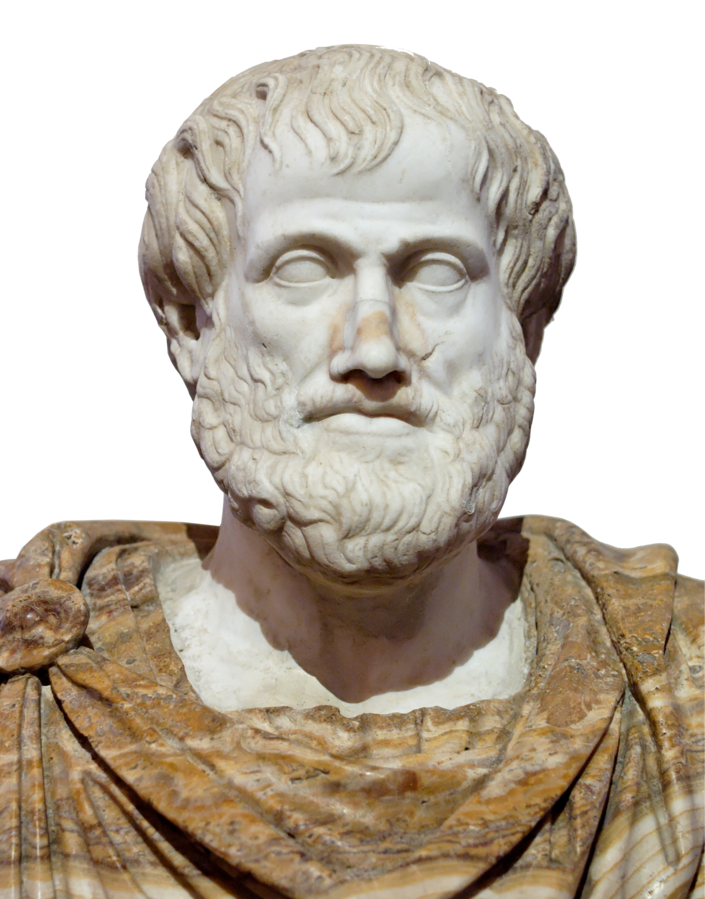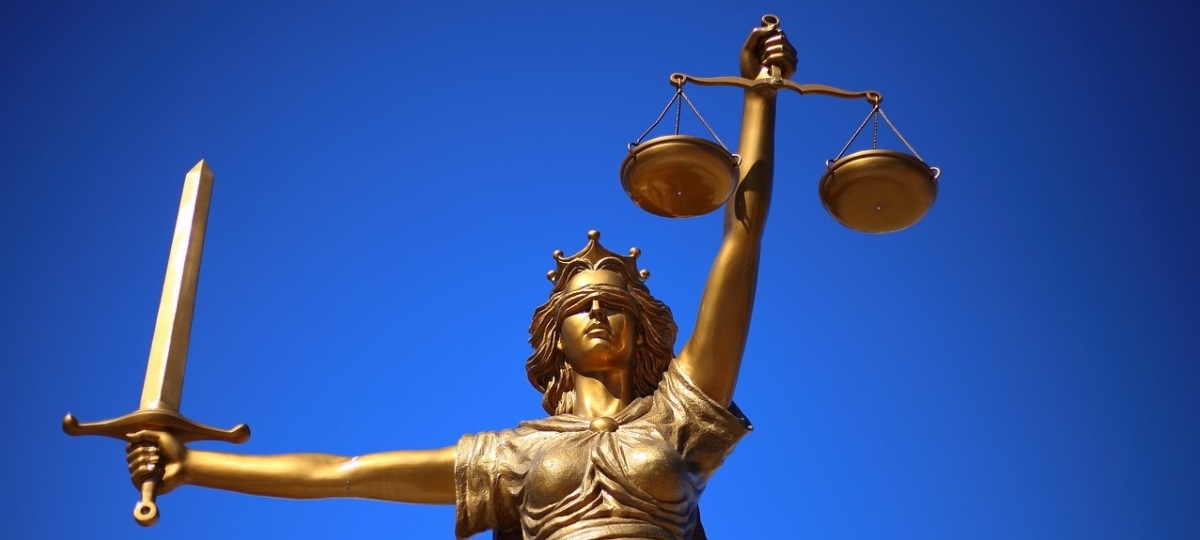
According to Aristotle- the law means “a sort of order, and good law is good order” and “reason unaffected by desire”, and “the mean”. Many of us are unaware of how a law making system established itself, its inner workings and its vast expanse. “The Principles of Natural Justice” may help us to understand some of the workings, importance and purpose of the law and judicial system in Human Civilization.
“You can’t escape from long arms of the law”- is one of the most famous dialogues from the classic detective/ investigative/ crime-based movies. These movie plots have somewhat same structure under them; our villain has tried all the ways to destroy the evidences from the location of crime and the witnesses. Eventually, the smart protagonist who was unable to prove the innocence to the court due to the trickery of antagonist finds a clue, a loophole which leads to the final victory in the court. There are many real-life examples of these cases. Here, the court serves as a middle man or the independent decision maker to decide what is right or wrong. (Even though ‘we’ as an audience know that the hero of the movie is right, the director takes whole movie to prove the thing to the judge!)
A system to decide ‘what is fair and what is not’ as a Judicial system is one of the most important parts of being a stable human civilization. This is what separates us from animals in some ways- we have a system to resolve the conflicts without too much of a blood shed. A strong judicial system is one of the pillars of democracy for the reason.
This means that there are certain laws for deciding what actions have to promoted and what actions are to be penalized. But the law has its limitations too. You cannot go on making law for everything in the world to be correct (and may be that is why you can still put pineapple on the pizza).
Human conflicts are so much diverse in nature that you cannot frame all of them or categorize them in certain sets and furthermore establish a law system to all of them. That is the point maybe beyond the reach of the law. There are many moments in real life where time calls for the clarity of what is wrong and right in situations at your workplace or you might the one who will be responsible for deciding the fate of people you are leading. How will you make the fair decisions there? What if, there is no written law to decide what has been right and what has to be called wrong? How to be fair and just in such situations?
You know what- you can’t escape the long arms of the law!
There is a fantastic concept of Principles of Natural Justice which is used to decide the fairness of any judgement. Actually, the scope of Principles of Natural Justice is highly focused on and intended for the Administrative Laws where there might be instances for which specific laws are not established.
There are two important statements which are stated in the Principles of Natural Justice from Latin maxims-
Nemo judex in causa sua
no-one is judge in his own cause
Audi alteram partem
listen to the other side
Nemo judex in causa sua-
The intention of this maxim is to make the decisions without any prejudices. Being judge in owns case already establishes the polarity of decisions while doing justice. The decision will always be in the favor of party the judge personally prefers which will lead to unfair decision. The unfairness in decision will actually diminish the trust of people in the judiciary system thereby the foundations of a good civilization. Hence, the independence of judge/ decision makers becomes of high importance while performing justice.
The maxim tries to remove one of the biggest flaws of being a human which is the flaw of being biased. The biases are the favored truths, prejudices of people which for them are the bendable truths. The biases will make the decisions subjective hence it will be difficult to create a good example out of any situation. Biases are like tinted goggles which filter certain ideas and makes the decision maker unclear of what the facts really are.
There are many biases found in human behavior which are always creating the illusion of truth until someone comes and proves them wrong for us. The Natural Justice highlights on some of the following biases:
Personal biases- It is the favor made while making decisions which will affect us and our relatives, friendships in a bad way. Thus, there must not be any personal interest or relation between the parties and the judge.
Pecuniary bias- It is the favor of decisions made to achieve financial advantages. The decision-making authority/Judge must not have any financial interest between the parties demanding justice and the judge.
Subject matter bias- A person who has supported a subject or has following for the subject on which the proceeding is going on will not give the hearing for the case. Otherwise again the favor of judgement will occur.
Departmental bias- A bias which is highly observed in administrative cases. As the name indicates the judge must not be of the same departments to which the justice demanding parties belong.
Preconceived notion bias- There must not be any presumptions in the mind of the judge which will affect the unfairness of the case. This bias is the most difficult bias to challenge. We as person are developed for the choice of what is wrong and what is right based on some truths and their comparison with the situations. These are our personal truths which actually develop the tendency to give justice while making decisions and we must accept that some of them may not be actually true.
The cultural differences, the upbringing of a person, the financial and family background of person, the environment around the person, the life altering events in that person’s life, the impact of other peoples’ decisions on the person’s life and so on, there are many factors which make a person- not only person but we all as a human to have our version of truths.
Even Friedrich Nietzsche also quotes the following:
All things are subject to interpretation. Whichever interpretation prevails at a given time is a function of power and not truth.
Friedrich Nietzsche
Meaning that out of all the truths everyone has, some of them feel true only because of the conditions in which they were presented. When we say that “Only victors write the history”- it leaves that space to think whether the victors were good or bad. If they were really bad then we have been presented the dark parts of history with needless glorification which is the real injustice with the truth. Here, the role of science becomes of highest importance which looks for the proofs of the facts.
Anyways, biases are that one integral flaw in our nature as human beings which will always challenge the fairness of decisions we make while solving the conflicts.
The ‘Nemo judex in causa sua’ helps to build the trust in the intentions of person giving the judgements. Otherwise, what is the point of an order which will not be enforced by the people for the well-being of the system created for the people themselves.
Audi alteram partem-
The purpose of this maxim is to gather all the information to make the judgement as fair as possible. It provides the chance for both the parties to put forth their version of truth.
This is also known as ‘the right to notice’. Unless the party is aware of the facts presented in or against their favor one cannot truly defend themselves. This also brings the inherent image of fairness, a just decision-making procedure in the judicial system.
Listening to only one side already violates the first maxim related to bias. It highlights that judge her/himself are favoring to one side only. Hence, listening to the other side creates that common ground for people with different version of their truths in front of the judge.
It not only important for a judicial system to offer justice to the people the act of offering a fair, just decision must also be observed by the people. ‘There must always be someone watching the justice being granted’- is the essence of the second maxim. This also strengthens the belief of people in judicial systems.
Listening to other side is not just about giving opportunity to other side- it is also one way to collect more supporting information for decision making.
Reasoned Decisions
There is also a third part of the Principles of Natural Justice which highlights the importance of reason in the justice offered. Their must be some provable logic/ reasoning to strengthen the justice offered otherwise it will be further challenged and the loop will go on. The people who will be affected by the decision must know why they will be affected. This importance of logic and reason in any hearing must be a speaking order which brings the seriousness and responsibility in the people and eliminates randomness of decisions. Any randomly passed decision will create loophole in the system thereby leading to many bad decisions in future which are sufficient enough to bring the entire system down.
If any ideology proves that the Principle of Natural Justice were not followed during the judicial process, the order becomes void or null. It becomes of no value.
There are some exceptions where the principle of natural justice natural justice will not be followed. This can be decided by the apparent nature and intentions of the actions while giving justice. Some of the events are related to the importance of emergency (exclusion in terms of emergency), maintenance of secrecy (exclusion in terms of confidentiality), tedious nature of addressing everyone when a group of people is representing one side (exclusion in case of impracticality), exclusion in case of routine matters- where the routine evaluations are being made for deciding fairness, exclusion in case of interim decisions – where the final decision has not been given and the suspension order is in effect, exclusion in case of legislative action- where the actions are taken base on the law already established (otherwise the law would be challenging itself which will create paradox) and the cases where no human rights were violated.
In the essence of the Principles of Natural Justice, it is one integral yet independent part of any judicial system in the world. These principles have actually defined the image of we as humanity and the system which runs it.
Actually, the Principles of Natural Justice digs deeper into the nature of subjective thinking of human beings for the mere purpose of survival.
The principles being ancient also highlight the fact that though many years have passed since the existence of human beings, we still think in the same way, we still create our own versions of truths, we still make decisions in the same way our ancestors used to do. Though the path followed is same, the primitive brain used is the same- survival instincts used are the same, it’s the addition of new truths to the previous set of truths in the process which are making humans to adapt to new definitions of being human- what it means to be a human.

